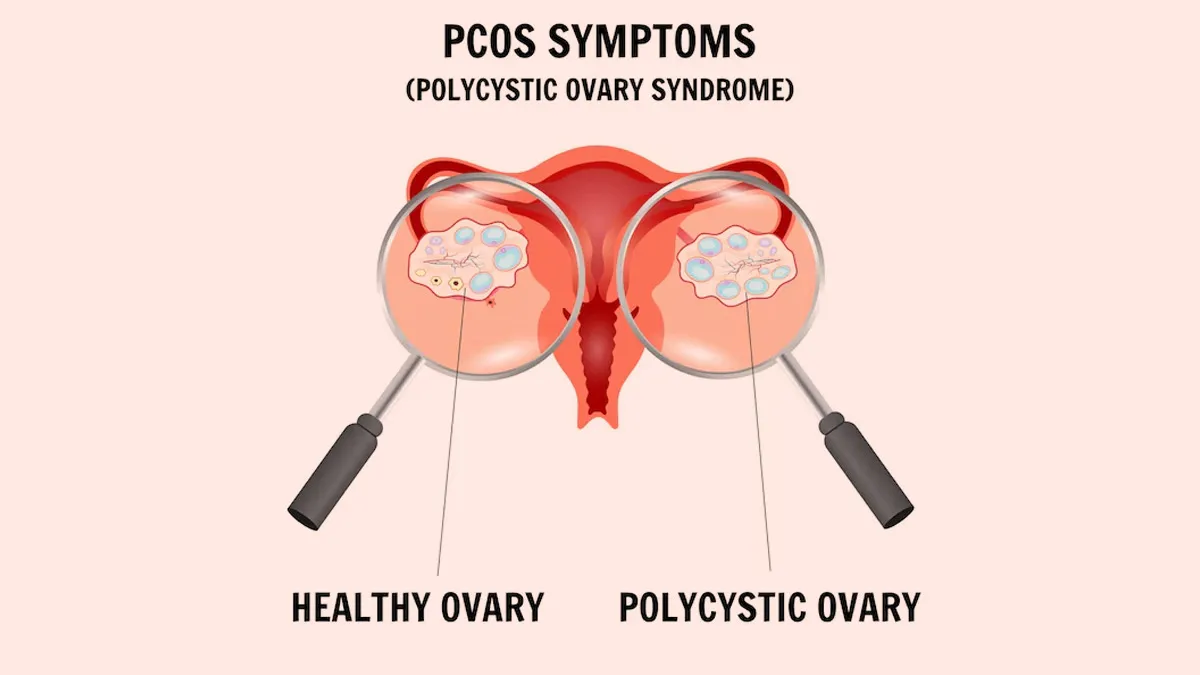
Getting diagnosed with Polycystic Ovarian Disorder (PCOS) can be an alarming call for taking measures to keep a check on your health. It is a common hormonal condition, which leads to enlarged ovaries with small cysts on the outer edges. It affects women of reproductive age and can cause symptoms, such as irregular periods, acne, and weight gain. If you are looking for ways to manage this condition, nutrition and exercise should be on your priority list. We spoke to Vidhi Chawla, Dietician and Founder, Fisico Diet and Aesthetic Clinic, Gurugram, who explained the role of nutrition and exercise and which matters more.
Table of Content:-
Role of Diet in PCOS Management

Keeping a check on your dietary habits is crucial as PCOS cannot be managed with a proper diet. “Women with PCOS often experience insulin resistance, which can worsen symptoms, such as weight gain, irregular periods, and hormonal imbalances. However, managing these symptoms is possible if you follow a well-balanced diet. This can help regulate blood sugar levels, reduce inflammation, and enhance overall health," said Chawla.
Nutritional Measures To Follow When Dealing With PCOS
According to a 2019 study, PCOS is one of the most common endocrine disorders affecting 6-21% of women of reproductive age. Here are some nutritional measures listed by Chawla that can help in PCOS management:

- Balanced macronutrients: You can include foods containing low-glycemic carbohydrates, healthy fats, and a mix of proteins to balance your blood sugar levels and reduce insulin spikes.
- High-fibre foods: Nourishing your body with vegetables, fruits, legumes, and whole grains can help promote digestive health and maintain blood sugar levels.
- Anti-inflammatory nutrients: Berries, turmeric, fatty fish, and leafy greens help fight systemic inflammation (a condition in which inflammation is there throughout the body), which is common in PCOS.
- Limiting refined carbs and sugars: Reducing processed foods can help minimise insulin resistance and support hormonal balance.
"Nutrition also plays an important role in maintaining weight, a critical factor in PCOS. Reducing even 5-10% weight can significantly improve symptoms like menstrual regularity, ovulation, and insulin sensitivity. PCOS patients can benefit from a sustainable, nutrient-dense diet tailored to their specific needs," said Chawla.
According to Johns Hopkins Medicine, women with PCOS should avoid foods, including fried food, processed snacks, red meat, saturated fats, white rice, refined flour, sugary beverages, and alcohol.
Also Read: PCOS Diet Myths You Should Stop Believing: Expert Explains What Women Should Eat
How Does Exercise Help PCOS Management?

Physical activity works alongside nutrition to tackle specific challenges associated with PCOS, including insulin resistance, weight gain, and mental health issues. "Engaging in regular exercise improves insulin sensitivity, aids in weight loss, and decreases the risk of developing metabolic problems, such as type 2 diabetes," added Chawla.
Effective Exercises for PCOS
- Strength training: Increases muscle mass, which enhances metabolism and insulin sensitivity.
- Cardiovascular exercise: Walking, cycling, or swimming helps with weight management and cardiovascular health.
- High-Intensity Interval Training (HIIT): Combines short bursts of intense activity with rest periods, promoting fat loss and improving insulin resistance.
- Yoga and mindfulness-based exercises: Reduce stress and cortisol levels, which can exacerbate PCOS symptoms.
Regular exercise also has a positive impact on mental well-being. "PCOS patients often experience anxiety, depression, or low self-esteem, and physical activity is a proven mood booster. Consistency is more important than intensity; even 30 minutes of moderate exercise most days can make a significant difference," advised Chawla.
Also Read: When Should You Get Tested For PCOS? Types, Cost And Dos And Don'ts
Exercise of Nutrition: What To Prioritise?
While most people either focus on following a healthy diet or engaging in physical activity, both are equally crucial in PCOS management. "Nutrition directly addresses the hormonal and metabolic imbalances central to PCOS. On the other hand, exercise enhances these benefits by boosting insulin sensitivity, aiding in weight management, and improving mental health," added Chawla.
Instead of seeing exercise and nutrition as opposing factors, think of them as working together. For example, a balanced diet provides the nutrition necessary for performing workouts and consistent exercise amplifies the benefits of a healthy diet.
Bottomline
Chawla concluded, "Managing PCOS in women requires a holistic approach that integrates both nutrition and exercise. Hence, focus on adopting sustainable and enjoyable habits that support your lifestyle and health goals. Combining these two powerful strategies allows you to control your PCOS and pave the way for long-term well-being."
[Disclaimer: This article contains information provided by an expert and is for informational purposes only. Hence, we advise you to consult your professional if you are dealing with any health issue to avoid complications.]
Also watch this video
How we keep this article up to date:
We work with experts and keep a close eye on the latest in health and wellness. Whenever there is a new research or helpful information, we update our articles with accurate and useful advice.
Current Version